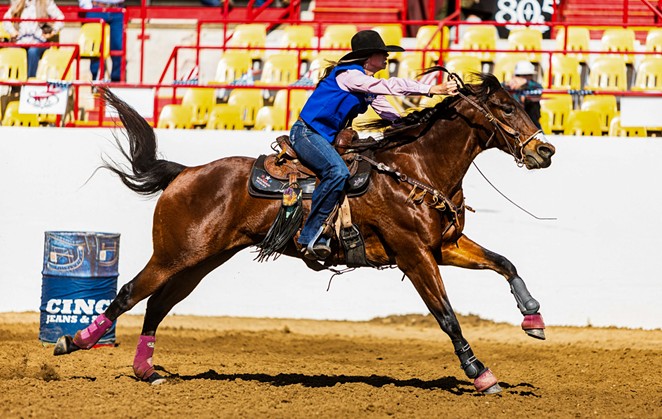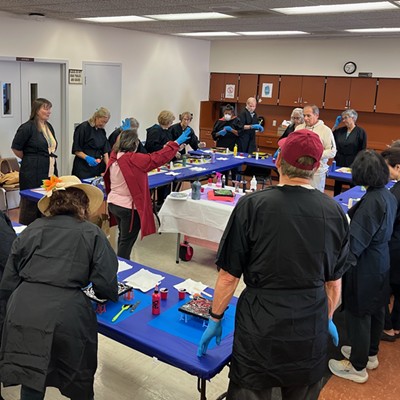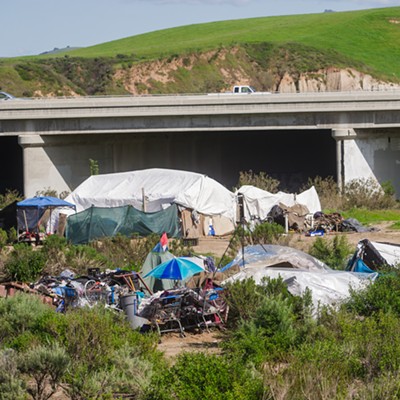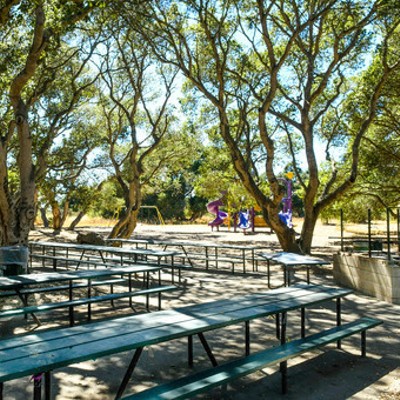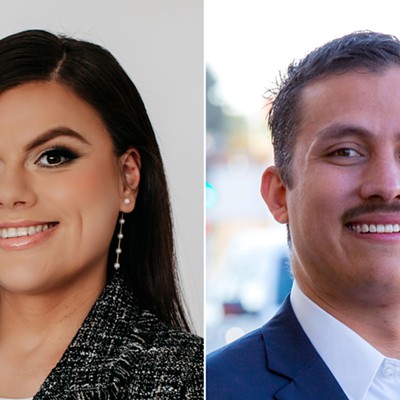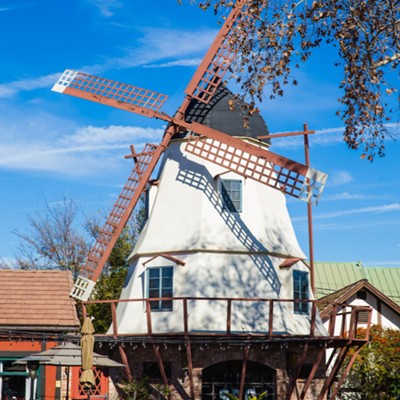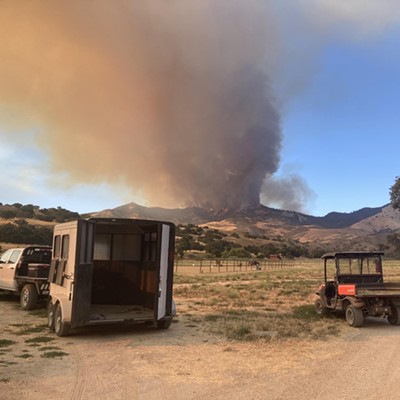Paloma Alvarado is in first place for barrel racing in the West Coast Region for collegiate rodeo, representing Allan Hancock College’s recently formed rodeo team against schools like Cal Poly, Cuesta College, Fresno State, University of Las Vegas Nevada, and Lassen College.
“When I came out of high school, I didn’t want to do any more school; it’s not for me. I just wanted to be physically active,” Alvarado said. “College rodeo opened a whole new door for me.”
The 22-year-old grew up in Los Angeles and fell in love with horses through her aunt, who had animals on her property in Acton, she said. She began English riding until she saw the National Finals Rodeo on TV.
“It completely lit up a light in me and I decided I wanted to do that,” Alvarado said.
Her family moved to Sunland in order to help her pursue her dreams, and she began training for barrel racing under a professional stuntwoman and barrel racer—who “put the bug” in Alvarado’s head about college and professional rodeo. Now, Alvarado is in her rookie year of pro rodeo and has been on Hancock’s rodeo team for the past two years, she said.
“I really wasn’t looking to rodeo in college, and one thing led to another and I love it now,” Alvarado said. “I’m extremely motivated because of rodeo, I put my school work as a priority, and I wouldn’t be where I am if there wasn’t a college rodeo team available.”
Hancock’s rodeo team formed in 2019 to appeal to more students in ag-related majors and to recruit students who were hoping to compete at a collegiate level.
While the pandemic caused initial setbacks, and last year the team was looking for a coach and permanent practice space, the team has grown to 12 students, has a full-time coach, and will be hosting its first rodeo at the Elks Rodeo Grounds on March 14 and 15.
“I’m super excited to be a part of something like that. We’re working hard to make it the best it possibly can be. Being a part of it makes me feel super lucky—the fact it’s the first one that’s ever been had,” Alvarado said.
Creating the team
Erin Krier was in a thrift store the night before the Hancock rodeo team’s very first competition, looking for vests for the students to wear, she recalled.
“I wasn’t aware we needed a vest to compete in the rodeo,” said Krier, coordinator and assistant professor at Hancock’s agriculture program. “I went to the thrift store and wrote with markers ‘Allan Hancock College’ because if not they would have been disqualified from competing.”
Krier acted as the coach and administrator in the early days of the Hancock rodeo team—guiding the first two team members and learning the rules and requirements of the National Intercollegiate Rodeo Association (NIRA) along the way, she said.
“Then we got more enrollment as the years progressed and I started to figure out what was required, and we needed a coach who understood those events,” Krier said.
Now, she oversees the academic side of being a college athlete by working closely with counseling, admissions, and records departments. She makes sure the students are enrolled in at least 12 credits and that each of them has at least a 2.0 GPA to ensure they meet NIRA requirements.
“The students who rodeo [are] like any student athlete, it’s such a significant part of their life and their passion,” Krier said. “It’s important they do not only what Hancock requires them to do but meet the requirements to compete.”
Before stepping back, Krier helped pitch the idea of a rodeo team to the Allan Hancock Boosters Club, a nonprofit dedicated to funding college projects. At the time, Krier was working with Jim Glines, boosters committee event chairman, to increase the ag program’s enrollment.
“Allan Hancock College has never had a rodeo team and we come from a pretty strong ag area. [Kids] rodeo from eighth grade to high school and want to rodeo in college,” Glines said. “If a student can attend Allan Hancock College and stay near or at home in those first two years of college while competing in the rodeo, that’s meaningful to me.”
The boosters raise money for the rodeo team every year, he said, estimating that it costs $150,000 “give-or-take,” he said
“The give or take is practice costs, rank cattle, our coach, the number of kids participating, paying travel expenses when they travel, insurance, there’s a lot to it,” Glines said.
While the boosters had a steep financial hill to climb, the community responded with overwhelming support, Glines said, adding that he’d like to see that momentum continue.
“I think our first goal was to simply fund a rodeo team, get them on the road, and get them competing,” Glines said. “We’d like to have 20 to 30 kids wanting to be on our team. We want to build that, and we want to be competitive.”
Competing to coaching
Hancock rodeo team coach Tyree Cochrane’s primary focus is to help build the college’s first intercollegiate rodeo, Cochrane told the Sun.
“I have a small program; I have 12 kids and to host a college rodeo is not a simple feat, especially being just down the road from Cal Poly rodeo,” Cochrane said. “Those are tough shoes to fill for a small program like us, to host all of these other students coming to our community and helping us grow our program is huge. We want to do everything we can to make our region successful.”
Cochrane is seeking sponsors for each rodeo event and coordinating with each sponsor to ensure they have banners in the arena, logos on barrels, or a table in the VIP tent, and working on creating customized packages for each sponsor, she said.
“We’ve been able to step up and put on a college rodeo, and it’s so exciting. A huge part of that is the Hancock Boosters; they are 100 percent behind the program and they show up to raise money in a fundraiser in August,” Cochrane said. “Seeing that community support and knowing it’s there gave me a lot more confidence.”
Cochrane grew up in SLO County and has been competing in rodeos since she was 4 years old. The 25-year-old started coaching in July after graduating with her master’s degree in animal science from Cal Poly—where she competed in barrel racing for the university’s rodeo team and faced off against Hancock students, she said.
“When they came to the rodeo and had their blue vests on, it was really exciting to have a new program in our region,” she said. “I have seen their program start and grow in my time as a contestant. When the coaching position opened up, I was still in school so I couldn’t jump in.”
Now, she holds practices at the Elks four times a week, with two days for roping and two days for barrel racing, and works with Cal Poly to allow her students to travel to use their animals and facilities for additional training.
“I’ve always enjoyed giving lessons and riding horses. I’ve ridden horses my entire life,” Cochrane said. “I’ve learned more about how to coach from the students themselves than from me doing the events.”
Reach Staff Writer Taylor O’Connor at [email protected].


